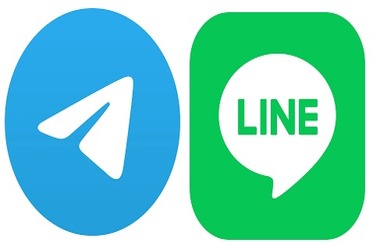
Telegram and Line Integrate Crypto Features
Two of the world’s most widely used messaging platforms, Telegram and Line, each boasting hundreds of millions of monthly users, have embraced crypto features in recent months. The integration includes functionalities such as e-signing, powered by the startup EthSign, a Singapore-based company supported by all three divisions of Sequoia — Sequoia Capital, Sequoia Capital India, and Sequoia Capital China (now known as HongShan).
EthSign’s Mission in the Web3 Space
EthSign’s objective is to provide a web3 equivalent of DocuSign, introducing an additional layer of transparency and trustworthiness to signing processes on the blockchain. The startup aims to convince users of the superiority of blockchain-based contract signing over traditional methods, emphasizing the ease of authenticating the identity of each signing party and providing a comprehensive history of their interaction with signed documents.
Enhanced Security and Transparency through Blockchain
According to EthSign’s co-founder and CEO, Xin Yan, blockchain-based e-signatures offer advantages such as enhanced authentication, a verifiable history of interactions, and the immutability of signed data. Unlike traditional e-signature providers, the use of distributed ledger technology ensures that user signatures’ records remain accessible even if the service provider ceases operations.
Deployment on Telegram and Line Blockchains
EthSign is deployed on the respective blockchain networks associated with Telegram (TON) and Line (Finschia). Users can seamlessly sign documents through EthSign by connecting their crypto wallets to these messaging platforms, facilitating a familiar interface akin to DocuSign. The startup’s integration with Telegram includes a mini app notifying users of pending documents for approval, streamlining the signing process.
Web3 Projects and TON Integration
EthSign is part of the web3 projects building on TON, Telegram’s blockchain partner, contributing to Telegram’s ambition to evolve into a comprehensive super app similar to WeChat.
Partnership with Finschia and Expansion Plans
While already live on Line as a web app, EthSign has inked a memorandum of understanding with Finschia for further integration in the upcoming months. This collaboration underlines EthSign’s commitment to expanding its footprint and functionality within the web3 space.
Immutable Signatures on Messaging Apps: A Historical Perspective
The concept of immutable signatures on messaging apps is not entirely novel. In 2018, a mini app named “Little Protocol” launched on WeChat in China, enabling users to bind themselves to agreements using their WeChat IDs, with the document’s content recorded on the Ethereum blockchain. Although garnering significant traction overnight, the app was taken down by WeChat within 48 hours.
EthSign’s User Base and Future Monetization Strategy
EthSign has already connected with approximately 250,000 unique wallet addresses. While currently free to use, the startup envisions evolving into an attestation service platform, intending to generate revenue through attestation, verification, and other user activities, deviating from the traditional Software as a Service (SaaS) model reliant on subscription fees.
In conclusion, EthSign’s integration into globally popular messaging platforms signifies a pivotal step in advancing blockchain-based solutions within the web3 ecosystem. As these platforms embrace crypto features, the collaboration with EthSign exemplifies the growing intersection of decentralized technology and mainstream communication tools, ushering in new possibilities and standards for secure and transparent interactions.